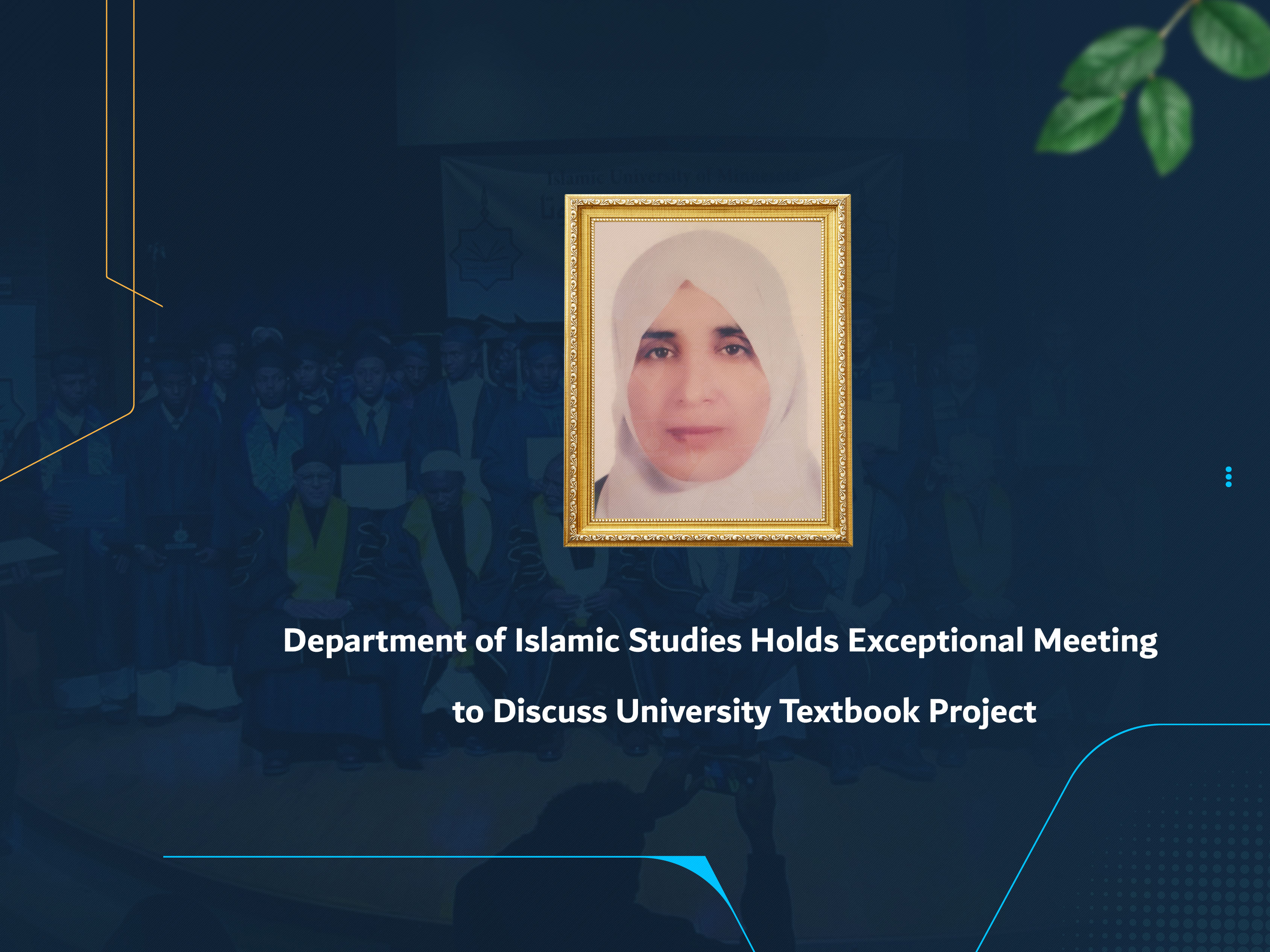Department of Islamic Studies Holds Exceptional Meeting to Discuss University Textbook Project

The Department of Islamic Studies in Arabic, part of the College of Islamic Studies at the Islamic University of Minnesota, main campus, held an exceptional meeting chaired by Dr. Fatima Jumaa Al-Wahsh on Saturday, May 17, 2025, at 9:00 PM Mecca time.
The meeting, which included the Curriculum and University Textbook Committee with the presence of distinguished faculty members, was convened to develop an executive plan for the university textbook project. Dr. Fatima Jumaa Al-Wahsh welcomed all attendees before addressing the meeting's agenda and discussing the preparation and authorship of university courses in accordance with university requirements and distance learning standards. The meeting aimed to unify academic efforts to create standardized university courses, ensure alignment with the course descriptions approved by the Curriculum Unit, and facilitate distance learning by organizing content and teaching methods.
The meeting covered five main topics:
1. The necessity of dividing the course into clear sections that align with the number of lectures (12 lectures per course).
2. The adoption of the university textbook to include: introduction, objectives, content, activities, index, and documented references.
3. The use of modern technologies such as QR codes to link lessons with audio or video explanations.
4. Presenting the material in a way that balances theory and practical application, especially in subjects like Tajweed and Hadith.
5. Proposing the authorship of a single book for each course, divided into levels according to the academic stage.
During the meeting, the committee's recommendations were presented, consisting of four points:
1. Forming specialized committees to author each course according to the specialization (Fiqh, Aqeedah, Hadith, Tafsir, Tajweed).
2. Adopting an easy-to-understand teaching style and using mind maps to simplify concepts.
3. Preparing course content that takes into account students' differences and enhances their academic foundation.
4. Submitting all authored materials to the university administration for official approval after review and verification.
The department chair assigned preliminary tasks to several faculty members: Dr. Ahmed Jumaa was tasked with preparing the course "Hadith of Judgments," Dr. Majid was assigned to prepare "Aqeedah 1 and 2" as a single book divided into two levels, Dr. Eid was appointed to contribute to the course "Religions and Sects," Sheikh Mustafa was assigned to prepare the book "Recitation and Tajweed" divided into three levels, and Dr. Anas was tasked with contributing to the course "Sciences of the Quran and Tafsir" in an applied analytical manner.
It is noteworthy that the meeting featured multiple contributions from esteemed professors addressing the scientific structure of the courses, unifying academic efforts, and proposing methodologies to develop the courses in line with students' needs and modern technologies.
Attendees included: Dr. Anas Radwan, Dr. Majed Obaid, Dr. Ahmed Jumaa, Dr. Abdullah Saud Al-Khaibari, Mr. Mustafa Aref, Dr. Ayman Mas'ad, Dr. Eid Harahsheh, and Ms. Anisa Al-Zikri, the Administrative Affairs Officer for the College of Islamic Studies and the meeting's minute taker.


